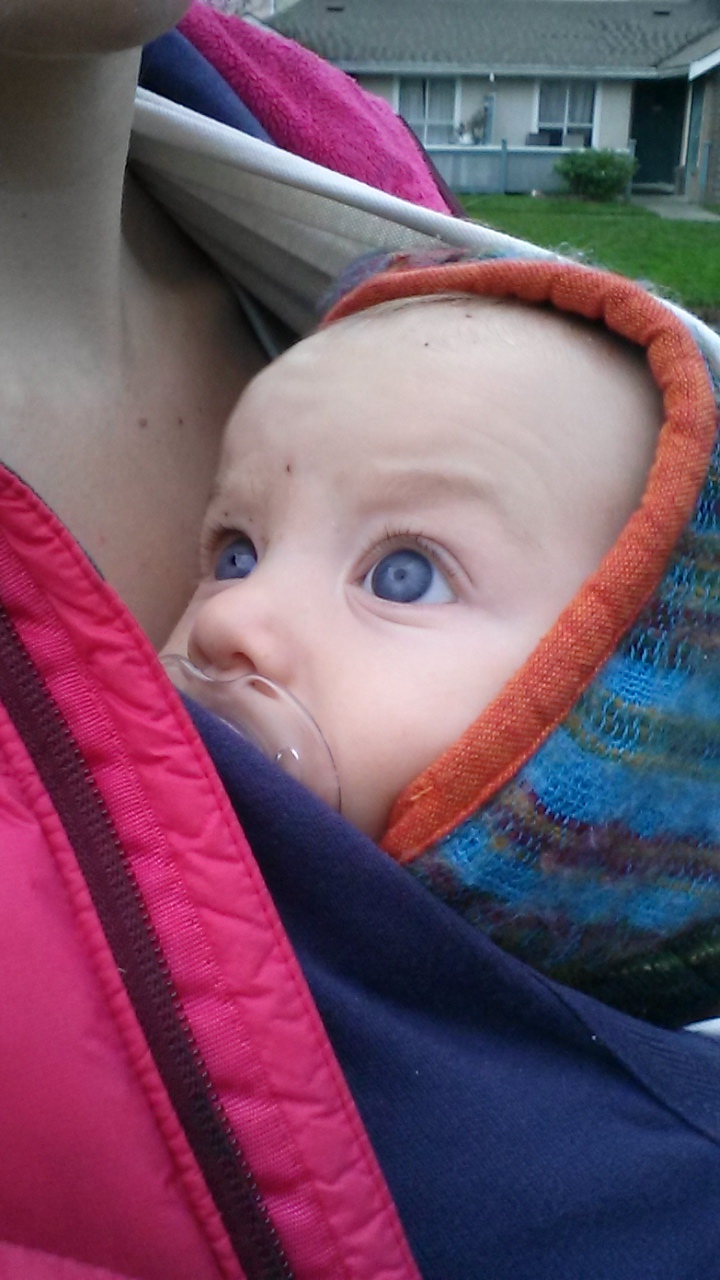Anger and sadness-these are two emotions that everyone experiences daily. So why are they so hated? As parents we’re often triggered by our child’s anger or sadness, and when we don’t recognize or address this, we use four responses over and over in relation to our child’s emotions.
- Dismiss– we ignore or dismiss our child’s feelings. Telling them they’re fine and that what they’re feeling isn’t actually valid or worthy of any attention/help.
- Distract– we try to stop our child from feeling whatever negative emotion they’re experiencing as quickly as possible. We put on the TV, we talk but don’t listen, we try to start fun new games, or we offer them toys and food to appease them.
- Punish– we punish our child for having emotions by yelling, spanking, shaming, revoking privileges, removing toys, or using time outs.
- Give in– we give in to the limit or boundary we originally set. We let them continue watching a show we said was all done, or we don’t make them hold our hand in the parking lot like we had asked.
Each of these responses to a child’s feelings does nothing to help them the next time they encounter a negative emotion. Dismissing, distracting, punishing, and giving in to our child only serves to harm them in the long run.
Dismissing and punishing children for experiencing anger and sadness lets them know you are not to be trusted with their feelings. It tells them that they are only worthy of attention and love from you when they’re experiencing positive emotions. Children who are dismissed and punished often for expressing and experiencing negative emotions, learn to bottle these emotions up or to push them aside. It also puts doubt and shame into a child about believing what their mind and body is telling them. Were they really angry? Was it not okay to be sad because they were told they had to leave the park? Are they a bad person for feeling this way?
Distracting and giving into a child when they experience anger and sadness lets them know that these emotions should not be felt, or if they are felt they should be quickly resolved/diverted. Instead of a child learning to use the tools they possess within themselves to manage these emotions, they are taught to find material things or use experiences to mask or temporarily resolve these feelings.
These responses to anger and sadness do nothing to benefit children in the long run. They do not teach children problem solving skills, compassion, empathy, dealing with change, being happy on their own, resilience, listening skills, communication, trusting themselves, understanding their mind and body, decision making, and negotiation…honestly the list could go on and on.
Now you know what not to do when you’re child is experiencing negative emotions, so what do you do instead? The answer is simple, you stay and you listen. You sit by your child or with your child, whatever they consent to, and you stay and you listen to them express all the hurt they’re feeling inside. You let them experience the anger and sadness they are feeling, you let them sit with these big emotions, you let them release these emotions, and you let them know you are here for them while they work through it. You could say, “I hear you’re having a tough time” or “I know it’s hard to wait for that toy” or “It’s okay to feel this way” or “I’m here for you”. Be there with them while they work through it, let them cry, let them yell, let them do what they need to do as long as they’re being safe to themselves and others. And when they’re calm and feeling better, talk with them if they’re ready. Ask them about what they were feeling, ask them why they were feeling that way. Let them think about those emotions and sit with them, together come up with ways they can communicate and express these emotions next time they arise. Problem solve together, listen together, communicate together, and let them know that it’s okay to feel this way and these negative feelings are just as valid as the positive ones.
Children are going to grow into adults who will encounter anger and sadness for the rest of their lives. Why do so many adults struggle to express these emotions in healthy ways? Why do they mask their feelings with addiction, or feel shame when they have negative emotions? It’s because they’ve been taught from a young age that to feel negative emotion is in itself a negative thing. Let your children know that that is not true. Happiness is not happiness without the experience of sadness, and joy is not joy without the experience of anger. Give your children the tools they need now to appropriately navigate negative emotions for the rest of their lives.



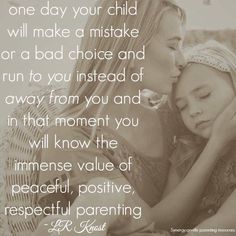
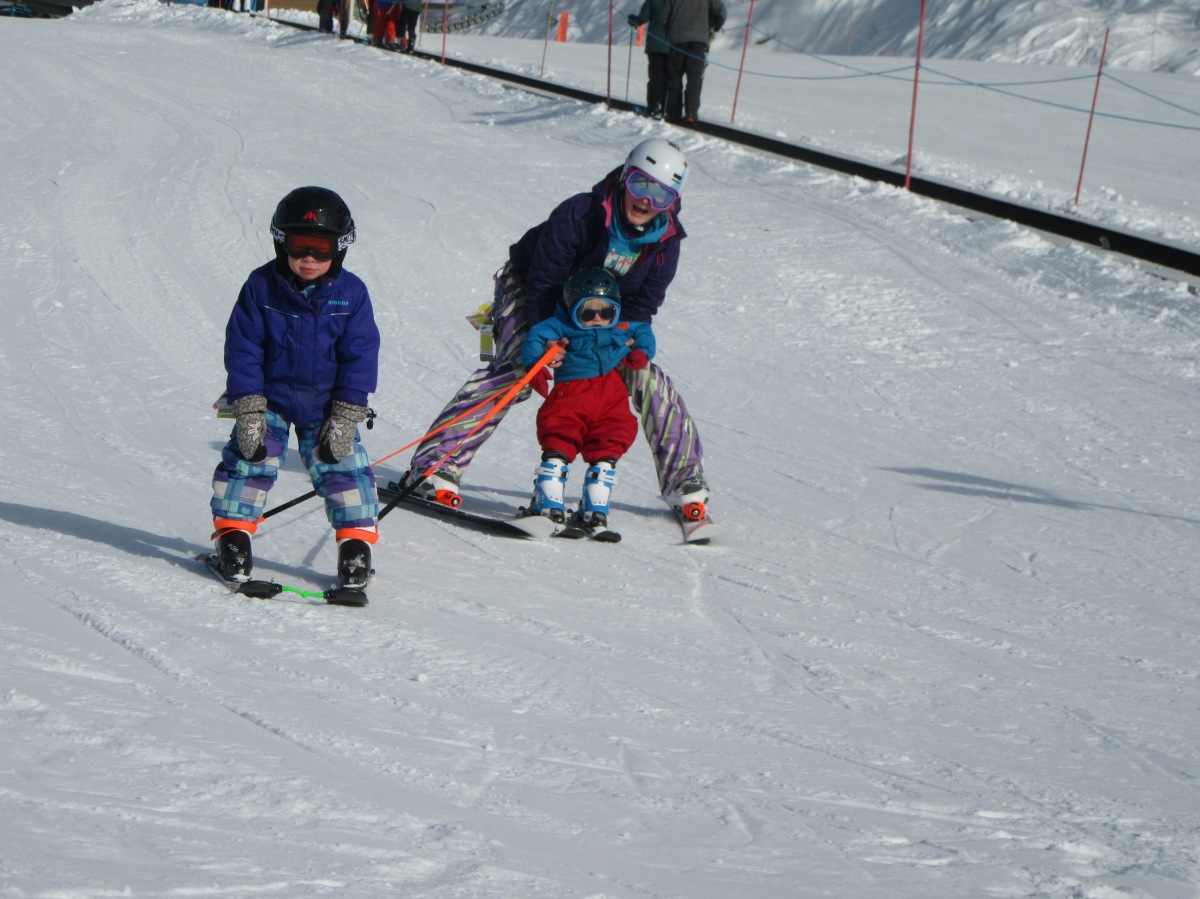
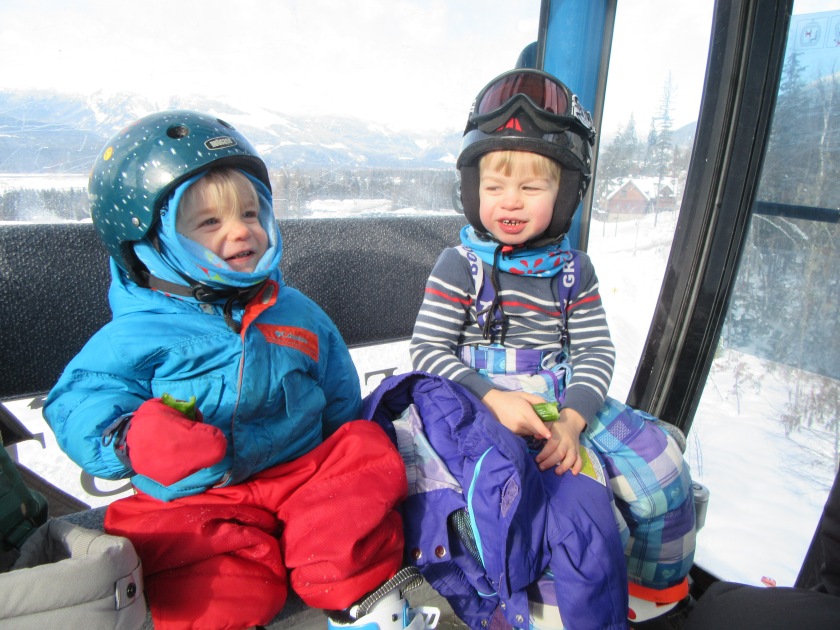
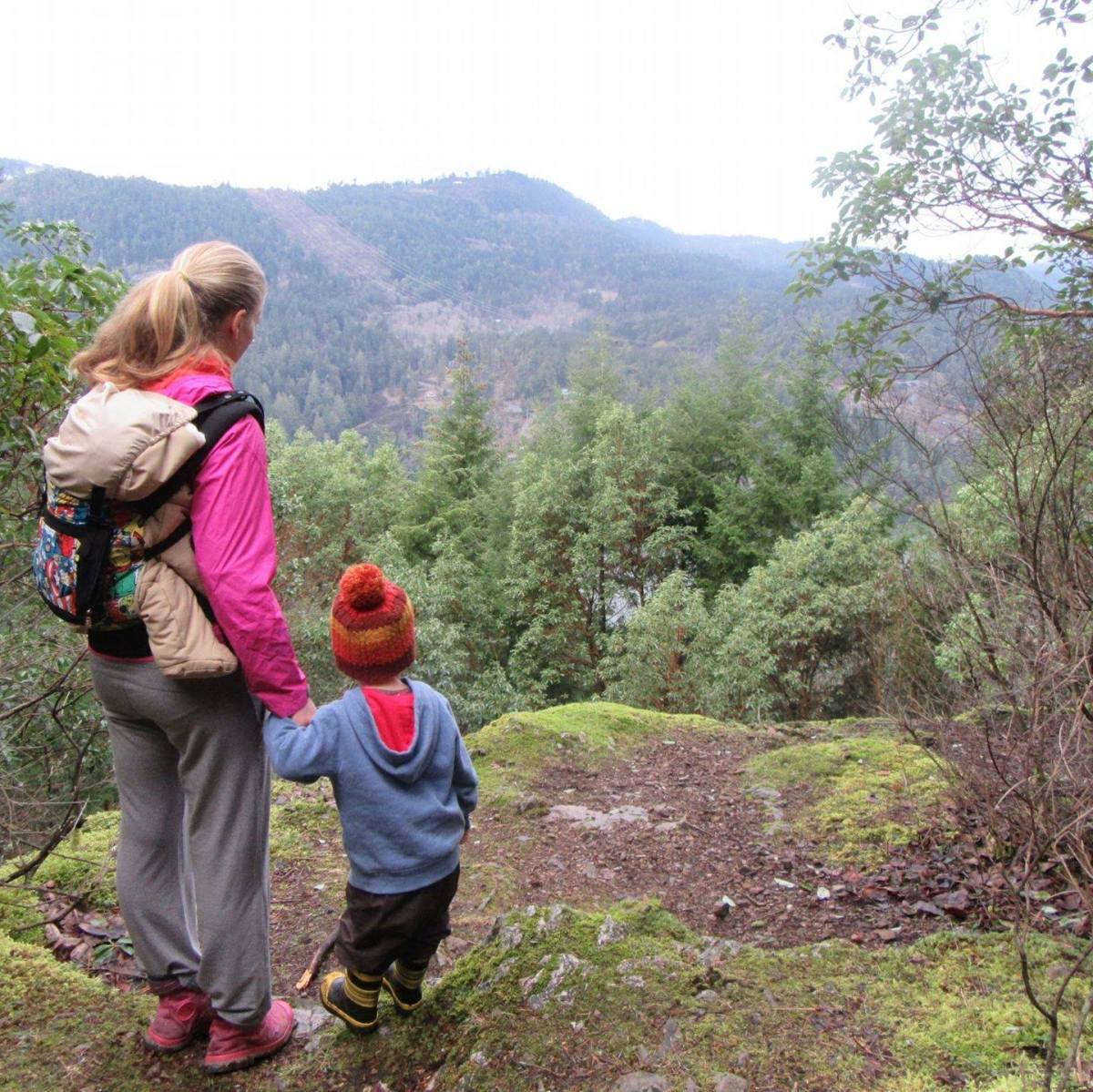
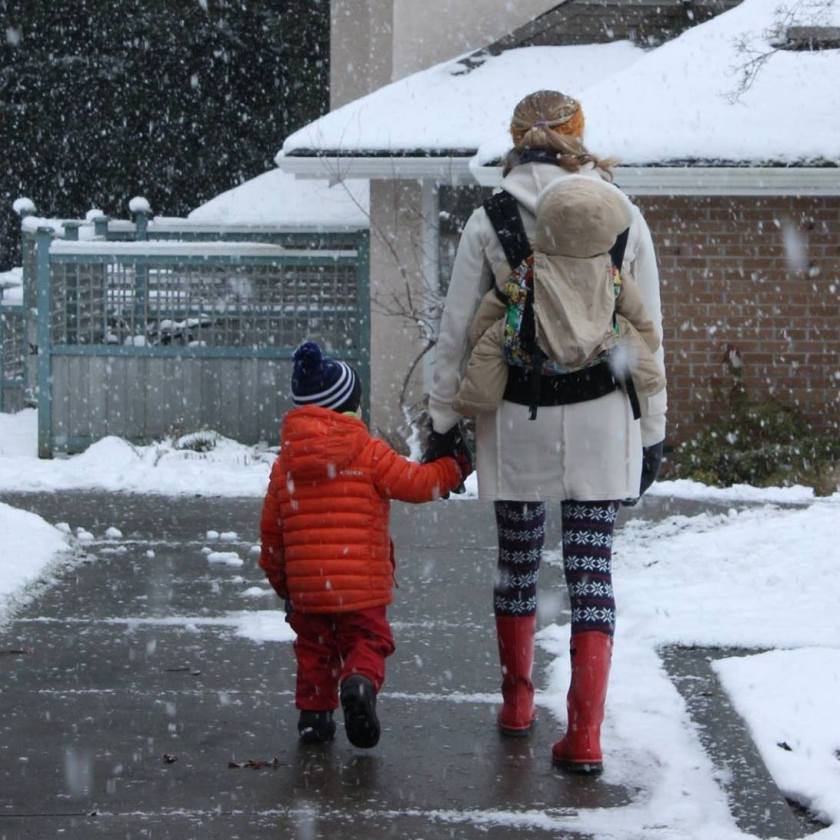
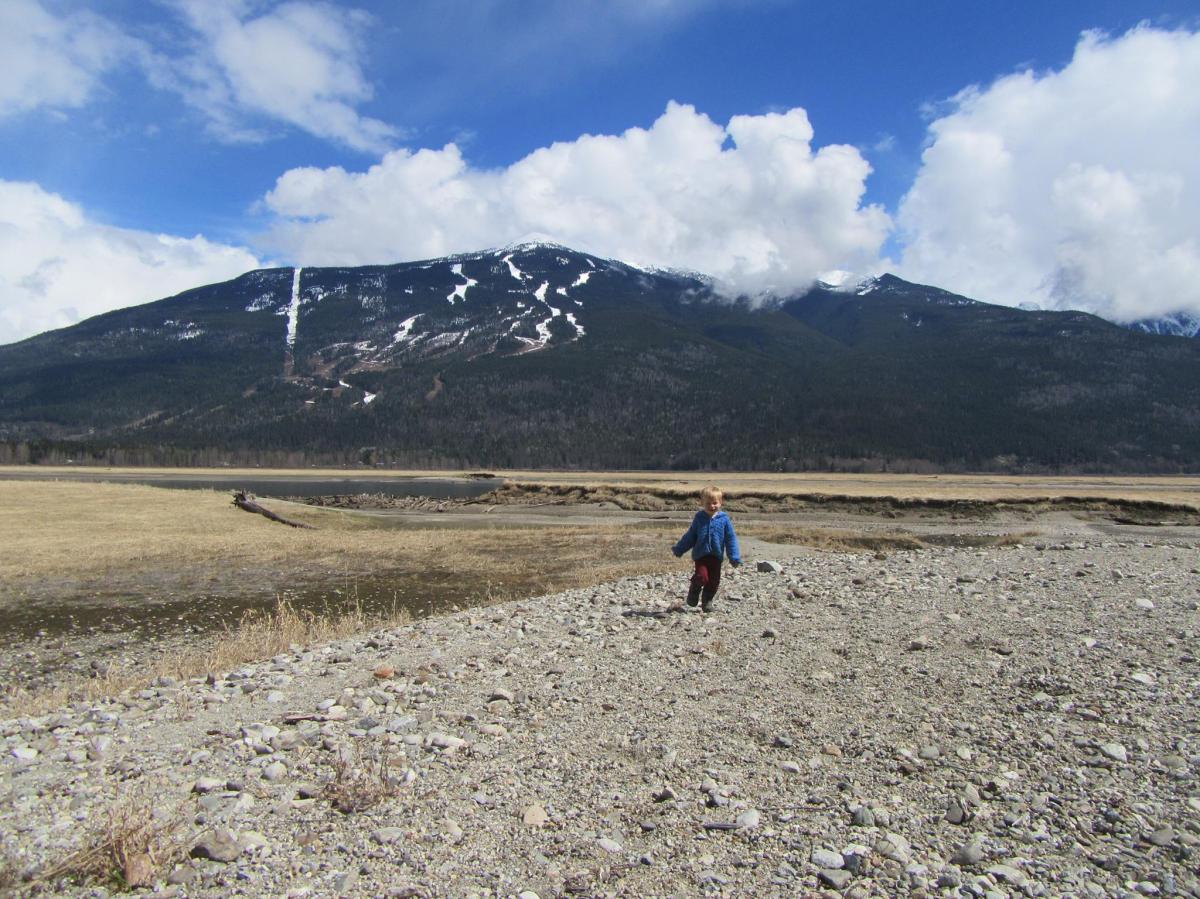
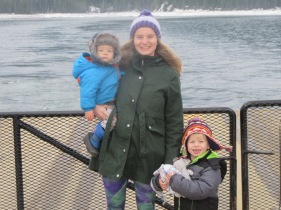 So what does having zero expectations mean? It means that yes it’s okay to have a goal in mind when heading outside, but be open to this goal changing or never being met. There have been numerous times we have gone for walks or hikes, and only made it part way due to a very curious toddler who stops every five seconds to look at something, or a baby who is screaming his head off. Or the times we’ve packed everyone up to go to the ski hill and the toddler decides today he will in fact only do one run and then he’s done. By having a goal in mind, but also being open to the fact that this goal can change or disappear altogether, you won’t feel like you haven’t accomplished anything. Nor will you feel the need to pressure your children into meeting the expectations you set of what you wanted to do outside. You got your children outdoors and you had fun! Really at this age that’s all that matters- opening up their minds to the endless possibilities nature has to offer. Children are unpredictable and their moods come and go, so having an open mind when outside will help everyone have a good time, and make it as stress free as possible.
So what does having zero expectations mean? It means that yes it’s okay to have a goal in mind when heading outside, but be open to this goal changing or never being met. There have been numerous times we have gone for walks or hikes, and only made it part way due to a very curious toddler who stops every five seconds to look at something, or a baby who is screaming his head off. Or the times we’ve packed everyone up to go to the ski hill and the toddler decides today he will in fact only do one run and then he’s done. By having a goal in mind, but also being open to the fact that this goal can change or disappear altogether, you won’t feel like you haven’t accomplished anything. Nor will you feel the need to pressure your children into meeting the expectations you set of what you wanted to do outside. You got your children outdoors and you had fun! Really at this age that’s all that matters- opening up their minds to the endless possibilities nature has to offer. Children are unpredictable and their moods come and go, so having an open mind when outside will help everyone have a good time, and make it as stress free as possible.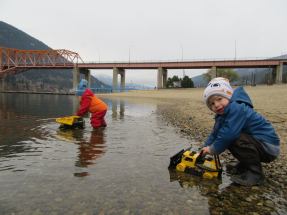 Sometimes getting children outside can be a lot of work. There’s bags to pack with snacks and all other necessities, appropriate clothing to be put on, the right gear to bring depending on what you are doing, and naps and meal times to take into the equation. It’s no wonder that after all this effort it can be a little frustrating when your child decides they actually don’t want to be outside. The best thing you can do in these situations is not to project on them how you’re feeling, or think about how much effort you had to go through to get them outside- a child can’t comprehend that. Just stay calm and remember that it’s all about having fun, and not placing your expectations onto your child. It’s okay to gently encourage your child when they are having a hard time outside, validate their feelings, listen to what they are telling you, make it playful again, and if you feel you can continue on outside then carry on. There have been many times both boys have melted down outside, but after some talking and listening they are both fine to continue on and have stayed outside for hours afterwards.
Sometimes getting children outside can be a lot of work. There’s bags to pack with snacks and all other necessities, appropriate clothing to be put on, the right gear to bring depending on what you are doing, and naps and meal times to take into the equation. It’s no wonder that after all this effort it can be a little frustrating when your child decides they actually don’t want to be outside. The best thing you can do in these situations is not to project on them how you’re feeling, or think about how much effort you had to go through to get them outside- a child can’t comprehend that. Just stay calm and remember that it’s all about having fun, and not placing your expectations onto your child. It’s okay to gently encourage your child when they are having a hard time outside, validate their feelings, listen to what they are telling you, make it playful again, and if you feel you can continue on outside then carry on. There have been many times both boys have melted down outside, but after some talking and listening they are both fine to continue on and have stayed outside for hours afterwards.
